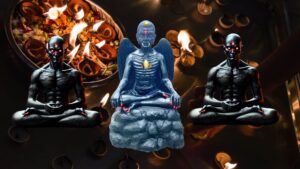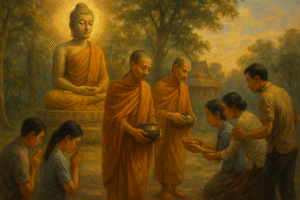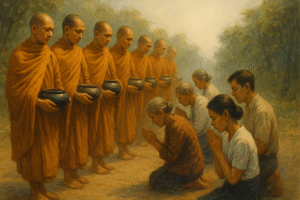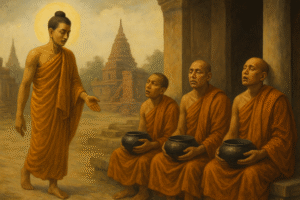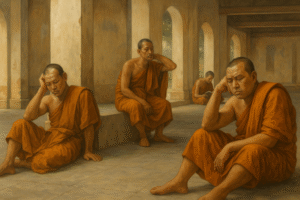Consider it this way: no one is obligated to carry the weight of another’s struggles, much like how a mountaineer isn’t required to bear the backpack of another climber. You shouldn’t feel a sense of guilt or unease if you find yourself unable to lend a helping hand to someone in a challenging situation, just as a sailor should not feel guilty if they’re unable to save another ship from a storm they themselves can barely navigate.
Guilt frequently emerges from a self-centric viewpoint, akin to a person feeling remorse for not watering a plant they didn’t plant, largely motivated by superficial sympathy. But genuine altruism calls for profound empathy – the ability to step into another’s shoes, just as a good novelist immerses themselves in their characters’ world to truly understand their feelings and perspectives.
It’s not beneficial to express sympathy with every person you cross paths with. Such compassion can be tinged with condescension, much like a giant looking down upon a dwarf, often amounting to nothing more than an ego boost. This is akin to a person flaunting their charity work for social media likes, rather than being driven by true empathy.
It’s vital to acknowledge that charity isn’t an obligation, just as a tree isn’t obligated to provide shade, nor are your personal struggles the responsibility of others, just as a leaf’s fall isn’t the tree’s fault. The boundary between responsibility and moral conduct should be as clear as the line that separates the sky from the earth.
Practicing charity is a moral excellence, a divine gift granted to humans, transcending mere animal instinct. It’s akin to a flower blooming out of a seed, representing compassion that arises from a consciousness that surpasses instinctive responses.
Charity focuses on selfless giving and sharing, not differentiating between the donor and the recipient, devoid of ego, and filled with empathy, much like the sun that shines equally on all without discrimination. This underlines the core of true charity. It’s crucial to acknowledge that the word “genuine” distinguishes the real from the unreal, like the difference between a diamond and a piece of glass.
Some may question, “Why are these distinctions and subtleties so critical?” According to spiritual guides, understanding these differences and applying them in our actions is as essential as a sailor knowing the difference between a lighthouse and a mirage. This represents the essence of spirituality. Only humans have the ability to reach this degree of consciousness, which serves as the stepping stone towards transcendence, like a caterpillar metamorphosing into a butterfly. Once we each reach a particular point of transcendence, life’s trials may dissipate, allowing us all to reach our ultimate potential, akin to a lotus reaching its full bloom despite emerging from the mud.

